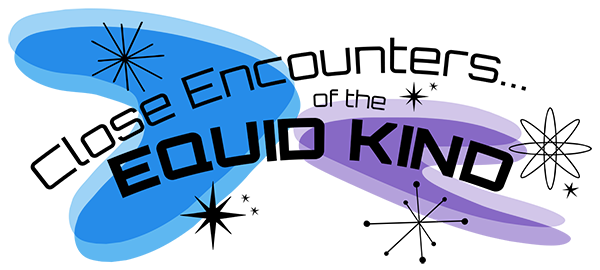Event Title
Learning Theory: Improving Horse-Human Communication, Horse Welfare, and Human Safety
Session
Alternative Presentations I
Location
Mary Tefft White Cultural Center, University Library
Start Date
28-9-2023 1:10 PM
End Date
28-9-2023 2:00 PM
Description
Horses start learning from the day they’re born. Every time you interact with one, your horse learns something. Horses constantly modify their behaviour because of their experience. This happens via learning theory: classical conditioning (Pavlovian) or operant conditioning.
People have been trying to train and understand horses throughout time. Xenophon recognized and encouraged a mutual respect between man and horse. Today, there are many marketed methods to train horses, including Natural Horsemanship, the old (cowboy) way of breaking a horse, and traditional training which is based on negative reinforcement. Research over the last ~60 years stresses the implementation of learning theory in training.
Many equestrians believe positive reinforcement is the most successful training method, yet seemingly do not understand its application. Many coaches use traditional training methods (i.e. negative reinforcement) as learned from their coaches.
Often, horses do not understand what we want from them, either because we do not understand how to use cues correctly, or because we do not know how to reward ‘correct’ horse behaviour timely or predictably, both of which are necessary for learning. Incorrect cues or applying simultaneous aids (signalling the horse to ‘go’ and ‘slow down’ at the same time) are welfare concerns.
Horses ‘talk’ to us using their ‘language’ so there should be a clear understanding on both horse and human. Incorrect cues or applying simultaneous aids (signalling the horse to ‘go’ and ‘slow down’ at the same time) are also welfare concerns. Horses deserve fair practices during training, competition, and everyday interactions. We owe our horses a good understanding of learning theory. The application of horse learning theory is the basis of this presentation.
Recommended Citation
Heartz, Holly, "Learning Theory: Improving Horse-Human Communication, Horse Welfare, and Human Safety" (2023). Equine History Collective Conference. 3.
https://docs.rwu.edu/equinehistory-conference/2023/thursday/3
Learning Theory: Improving Horse-Human Communication, Horse Welfare, and Human Safety
Mary Tefft White Cultural Center, University Library
Horses start learning from the day they’re born. Every time you interact with one, your horse learns something. Horses constantly modify their behaviour because of their experience. This happens via learning theory: classical conditioning (Pavlovian) or operant conditioning.
People have been trying to train and understand horses throughout time. Xenophon recognized and encouraged a mutual respect between man and horse. Today, there are many marketed methods to train horses, including Natural Horsemanship, the old (cowboy) way of breaking a horse, and traditional training which is based on negative reinforcement. Research over the last ~60 years stresses the implementation of learning theory in training.
Many equestrians believe positive reinforcement is the most successful training method, yet seemingly do not understand its application. Many coaches use traditional training methods (i.e. negative reinforcement) as learned from their coaches.
Often, horses do not understand what we want from them, either because we do not understand how to use cues correctly, or because we do not know how to reward ‘correct’ horse behaviour timely or predictably, both of which are necessary for learning. Incorrect cues or applying simultaneous aids (signalling the horse to ‘go’ and ‘slow down’ at the same time) are welfare concerns.
Horses ‘talk’ to us using their ‘language’ so there should be a clear understanding on both horse and human. Incorrect cues or applying simultaneous aids (signalling the horse to ‘go’ and ‘slow down’ at the same time) are also welfare concerns. Horses deserve fair practices during training, competition, and everyday interactions. We owe our horses a good understanding of learning theory. The application of horse learning theory is the basis of this presentation.


